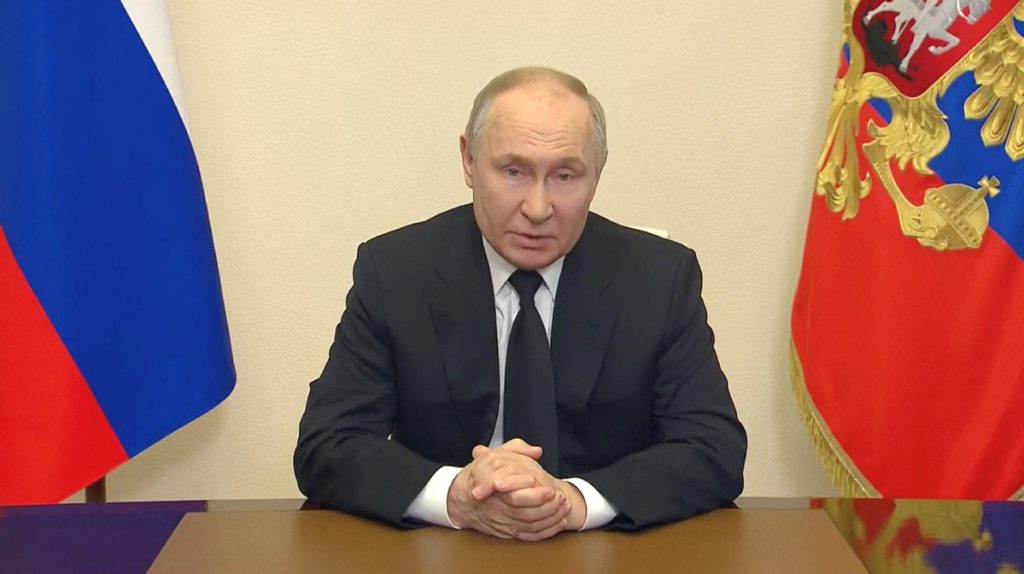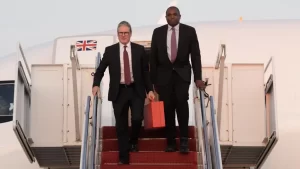Putin Sets New Boundaries on Long-Range Missiles: What’s at Stake?
3 min read

This morning’s headline in Kommersant read: “Vladimir Putin Draws His Red Line.” The question now is whether the West will cross it and how Russia might react if they do.
In a recent speech in St Petersburg, President Vladimir Putin issued a stern warning to Western nations: do not allow Ukraine to use long-range missiles supplied by the West to strike Russian territory. He characterized such actions as equivalent to “direct participation” by NATO countries in the conflict. Putin stressed that this would fundamentally alter the nature of the war, implying that the involvement of NATO countries and the U.S. would equate to a direct conflict with Russia.
According to Putin, any missile strikes on Russian soil would require Western satellite data and that only NATO personnel would be capable of entering flight missions into these missile systems. This, he argued, would transform the current conflict into a broader confrontation between Russia and NATO.
Historically, Russia has set red lines that have been breached before. On February 24, 2022, when Putin announced the full-scale invasion of Ukraine, he warned of severe repercussions for any external interference. “No matter who tries to stand in our way or create threats for our country and our people, they must know that Russia will respond immediately,” he had declared, promising consequences the likes of which the world had never seen.
Despite these warnings, Western leaders largely dismissed them as nuclear posturing. Since then, the West has provided Ukraine with a range of military support, including tanks, advanced missile systems, and recently, F-16 fighter jets.

In recent months, Russia has accused Ukraine of using American long-range ATACMS missiles to target Crimea, the peninsula annexed by Russia. Russian officials and state media have frequently accused the West of “fighting Russia” or waging “a war” against it, even though it was Russia that initiated the invasion.
Putin’s latest comments suggest that Western missile strikes on internationally recognized Russian territory would elevate the conflict to a new level. However, he did not specify how Moscow would respond, stating only that decisions would be made based on the perceived threats.
On Friday, Russia withdrew the accreditation of six British diplomats, accusing them of engaging in “subversive activities” that threaten Russian security. This move, however, appears to be a small part of a broader potential response.
In June, Putin hinted at possible responses. When asked about Ukraine using European-supplied weapons to strike Russian targets, he suggested that Russia would enhance its air defense systems to intercept such missiles. Additionally, he implied that Russia might consider supplying similar weapons to adversaries of the West to strike Western targets elsewhere.
Moreover, earlier this month, Russia’s deputy foreign minister, Sergei Ryabkov, announced that Russia would be revising its nuclear doctrine in response to what he described as escalating actions by Western adversaries. This revision could signal a more aggressive posture regarding Russia’s use of nuclear weapons.
As these developments unfold, Sir Keir Starmer is in Washington for talks with President Biden. One of the main topics on their agenda is the issue of Ukraine and long-range missiles. Starmer emphasized, “Russia started this conflict. Russia illegally invaded Ukraine. Russia can end this conflict straight away.”
Western leaders now face a critical decision: whether to continue supporting Ukraine with advanced weapons, risking further escalation of the conflict, or to reconsider their stance on the use of long-range missiles in Ukraine’s defense.